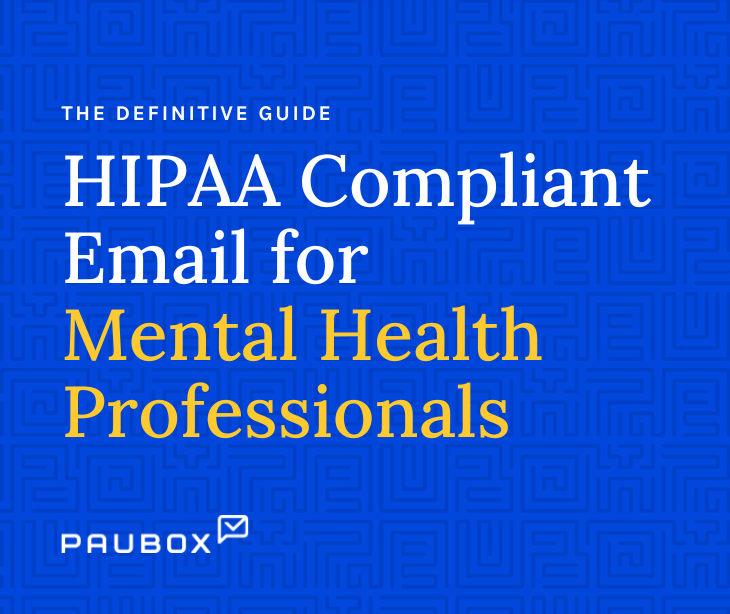
Nurses must use HIPAA compliant emails to send patients’ mental health information, upholding ethical principles and ensuring patient privacy in mental healthcare.
Ethical principles
Nurses must uphold ethical principles that protect patient rights and ensure quality care. According to research on mental health and community concepts in nursing, “Although there are many ethical principles that guide nursing practice, foundational ethical principles include:
- respect for autonomy (self-determination),
- beneficence (do good),
- nonmaleficence (do no harm),
- justice (fairness),
- fidelity (keep promises),
- veracity (tell the truth).”
Simultaneously, nurses must ensure that their communications comply with the Health Insurance Portability and Accountability Act (HIPAA). Specifically, they must maintain patient confidentiality when discussing medical information, whether in-person or electronically.
Steps for HIPAA compliant emails
1. Obtain consent: Nurses must get explicit patient consent before including their PHI in emails.
2. Use secure systems: Nurses must use secure emailing platforms, like Paubox, that use encryption to protect mental health information.
3. Limit information: HIPAA compliant emails must only contain the necessary information for its intended purpose.
4. Documentation: HIPAA compliant emailing platforms keep a record of communications so nurses can easily track and reference past patient interactions. Nurses can also use these emails to update patient histories, ensuring continued patient care.
Implementing ethical principles in HIPAA compliant emails
Autonomy
“The ethical principle of autonomy recognizes each individual’s right to self-determination and decision-making based on their unique values, beliefs, and preferences,” explains the research mentioned above.
Nurses must respect this principle, ensuring that any emails are clear, respectful, and supportive of the patient's choices. Moreover, nurses must obtain explicit patient consent before sending emails with their health information.
Beneficence
“When caring for clients with mental health disorders, nurses implement beneficence when advocating for evidence-based treatment for clients’ mental health.”
HIPAA compliant emailing platforms, like Paubox, offer encryption and access controls to safeguard patients’ protected health information (PHI). It also allows nurses to send patients health information, appointment reminders, or follow-up care instructions that benefit patient health.
Nonmaleficence
Nonmaleficence is the commitment to do no harm. In HIPAA compliant emails, this means safeguarding patient information to prevent data breaches or unauthorized access, which could harm the patient.
Additionally, nurses should double-check email addresses before sending so the information is delivered to the correct recipient.
Justice
In mental healthcare settings, nurses must ensure that “quality care is provided to all clients, even those who do not have the cognitive ability to communicate their needs.”
Nurses can tailor HIPAA compliant emails to be accessible to all patients, considering language barriers, disabilities, and access to technology. Furthermore, these emails can be tailored to their mental health needs and provide resources for accessing appropriate care.
Fidelity
“Role fidelity is defined as being responsible for providing competent nursing care.” Fidelity involves maintaining trust by keeping promises and commitments.
Nurses can demonstrate role fidelity by advocating for their patients' best interests. Specifically, nurses can use HIPAA compliant emails to include patients in the decision-making process so their preferences and values are respected.
Veracity
Veracity is the obligation to tell the truth. Nurses must provide truthful information in their HIPAA compliant emails to maintain patient trust and support informed patient decisions.
Additionally, HIPAA compliant emails should avoid complex medical jargon that could confuse patients.
FAQs
Can personal email accounts be used to send patient PHI?
No, personal email accounts do not offer the security features and encryption required for HIPAA compliance. Instead, providers should use a HIPAA compliant emailing platform, like Paubox, which offers encryption, access controls, and audit trails to safeguard patients’ protected health information (PHI).
How do audit trails help with HIPAA compliance?
An audit trail tracks all email activities, providing a record of who accessed the emails and when to help monitor and ensure HIPAA compliance.
Can HIPAA compliant emails be used for marketing purposes?
Yes, providers must obtain explicit patient consent and use a HIPAA compliant email marketing platform, like Paubox.
Subscribe to Paubox Weekly
Every Friday we'll bring you the most important news from Paubox. Our aim is to make you smarter, faster.



